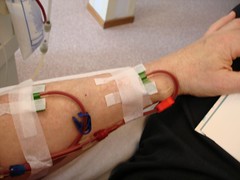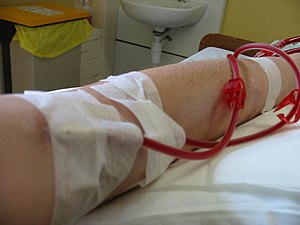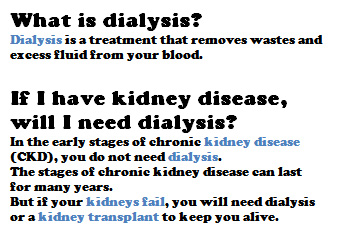In clinical practice, there are considerable differences in the timing of the start of kidney dialysis in patients in fifth stage of kidney disease. Traditionally, the treatment was started after the first appearance of signs and symptoms of uraemia.

Factors to consider when starting kidney dialysis
 When starting dialysis in patients with renal disease "end stage" is a
important clinical problem that has only recently been addressed in
a randomized clinical trial of sufficient size, the IDEAL (
initiating Dialysis Early And Late).
When starting dialysis in patients with renal disease "end stage" is a
important clinical problem that has only recently been addressed in
a randomized clinical trial of sufficient size, the IDEAL (
initiating Dialysis Early And Late). The main suggestions for clinical practice that emerge from this study are two:
- The uremic symptoms begin well before the filtrate is reduced to lower levels of 6 mL / min, and this phenomenon requires anticipation of the dialysis filtrate highest levels in the majority of patients.
- delay the onset of dialysis until the appearance of uremic symptoms approach is reasonably safe if you establish a good surveillance clinic.
From where to start?
- A periodic check of your doctor can help prevent the onset of disease symptoms or diagnose early presence. The final objective is still to slow the progression of the kidney disease and to delay as much as possible dialysis.
- If kidney disease is at an early stage it is possible to make the diagnosis of the type of kidney disease and begin a targeted treatment that may allow the recovery of renal function.
- If the cause of kidney failure is diabetes or hypertension, your doctor will tell you how to deal with and to better control the disease. The therapeutic measures are much more effective when they are taken early, before you have advanced kidney damage.
- Consider carefully what are your priorities in life: health should be one of them. Health should be put first even when you're at the table or you are doing your job. This is the first rule, especially for those already suffering from diabetes or hypertension, the two leading causes of kidney disease.




